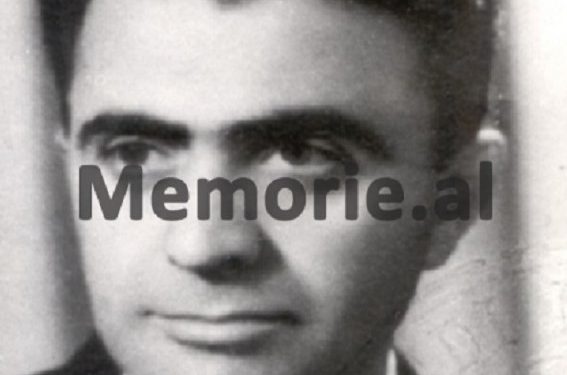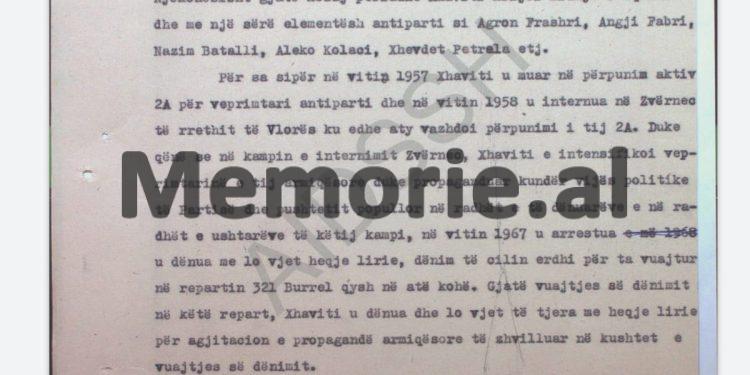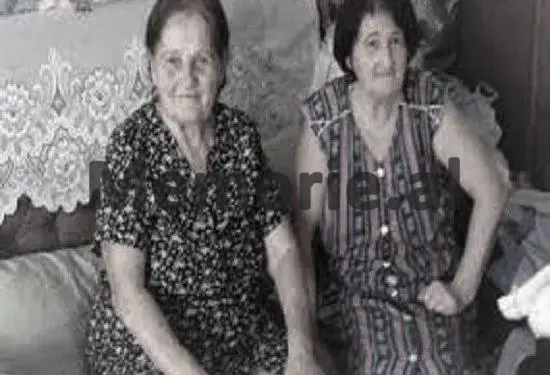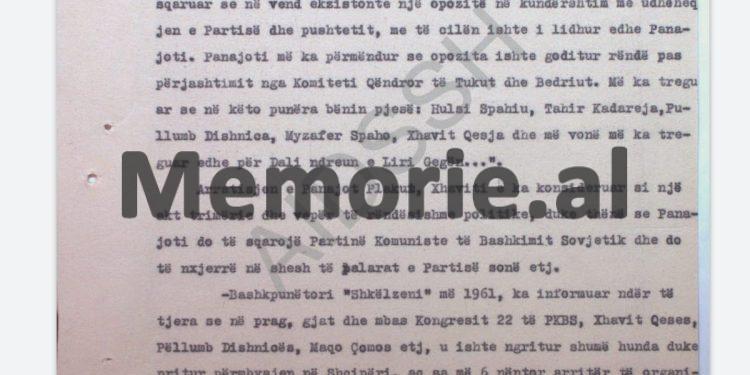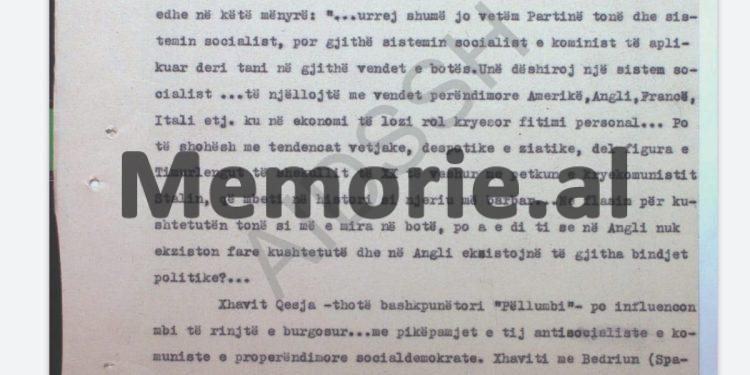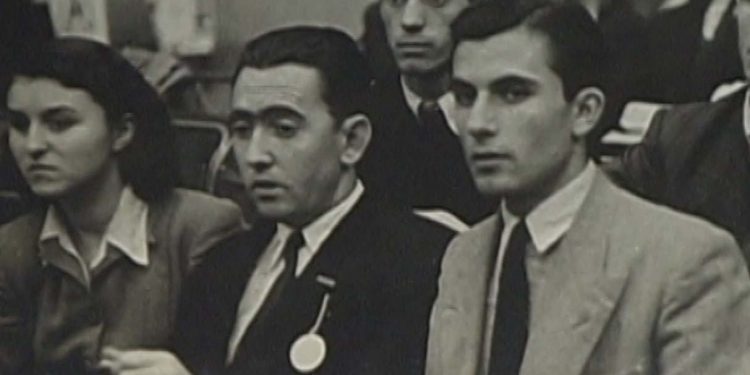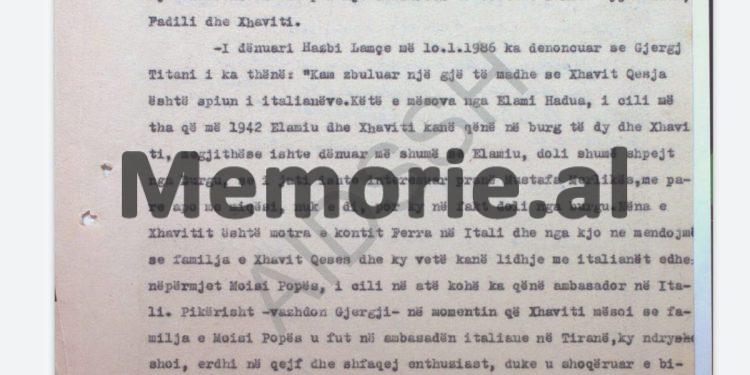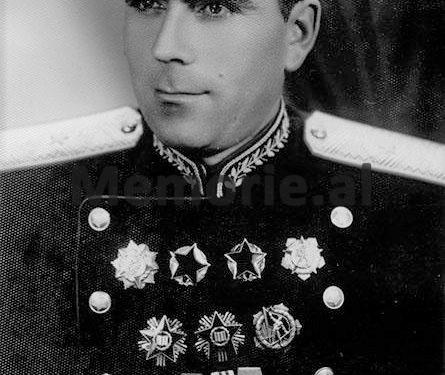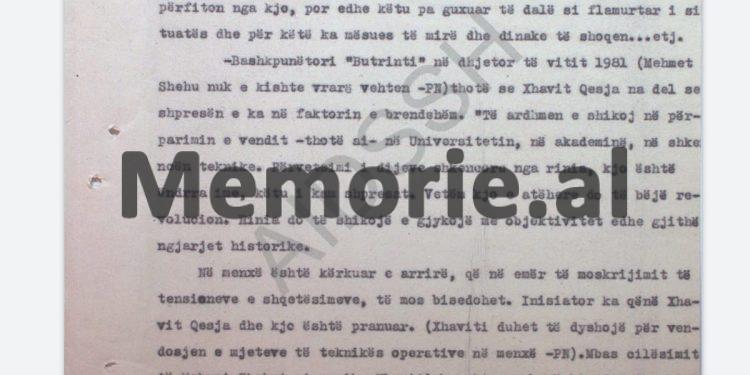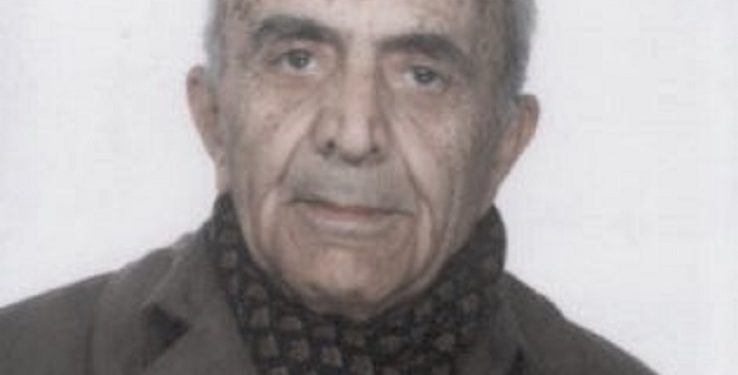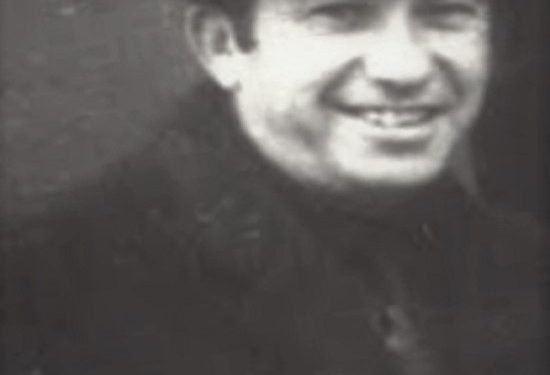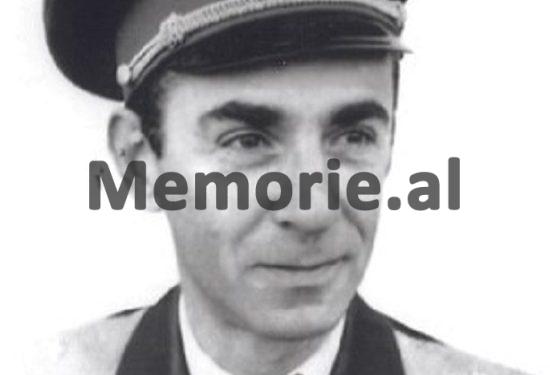Dashnor Kaloçi
Part fifty
Memorie.al publishes a voluminous archival file issued by the institution of the Authority for Information of Former State Security Files, where there are hundreds of documents with the logo “Top secret” belonging to the former political prisoner, Xhavit Qesja, originally from the city of Kruja, whose family during the period of occupation of the country, 1939-1944, was closely associated with the Anti-Fascist Movement, being one of its main bases and made available all the wealth it had, as Xhavit was one of the first members of the Albanian Communist Party for the Kruja district, leading the Kruja-Ishëm partisan battalion and the 22nd Assault Brigade. Xhavit Qese’s political career after the end of the War, where he was appointed and served in senior positions in the Albanian Army, the apparatus of the Central Committee of the ALP, and several districts of the country, from where he was sent to study in the Soviet Union, where stayed until 1957, when he was announced to return to Albania urgently, after openly expressing his views in favor of the political line being pursued by the main Kremlin leader, Nikita Khrushchev, condemning the Stalin cult. Enver Hoxha’s conversation with Xhavit Qesen in his office in the Central Committee, where he sharply criticized him for the wrong views he had expressed during his studies in Moscow, urging him to reflect and make self-criticism, but Xhavit rejected the suggestion of the first secretary of the Albanian Labor Party, which caused him to no longer be allowed to go to the Soviet Union to complete his studies, but to be sent to work as deputy chairman of the Elbasan Executive Committee, from where a year later, he was expelled from the Party and exiled to Zvërnec Island, where the communist regime kept isolated some of the former senior party and state cadres whom he had condemned for their anti-party views. Xhavit Qesva’s long ordeal and persecution from 1957 to 1990, where he spent a full 32 years in prison and internment, being one of the few convicts in Burrell Prison who went on long hunger strikes in protest of the treatment and savage attitude that the communist regime of Enver Hoxha was holding towards him. The complete form, investigative and judicial file in charge of Xhavit Qeses, which is published for the first time by Memorie.al, which contains the documents of the former State Security that reflect the prosecution and wiretapping against him, the reports of Security collaborators with pseudonyms their correspondence with the letters he sent to the highest party and state instances, as well as the highest leaders of the ALP, until 1991 when he was released from prison!
Continued from the previous issue
Secret report of the Operational Officer of Burrel prison, PIro Nuredini, regarding the biographical data of the convict Xhavit Qesja, as well as his political views and position during the period he was serving his sentence in that prison and the relations and relations he maintained with him other convicts
Secret
Burrel, November 26, 1986
R E L A T I O N
In 1958, after the XX Congress of the Communist Party of the Soviet Union and the 1957 Party Conference for Tirana, Xhaviti, while studying in the Soviet Union, expressed his anti-party views, calling our Party’s position in relations with Yugoslavia and Poland, as an unjust attitude.
For these mistakes, he was called from Moscow where he was studying, to the Central Committee of our Party, he was advised, left his studies and transferred to Elbasan, with the position of deputy chairman of the District Executive Committee.
After these actions, Xhavit Qesja started propagandizing against the Party and its political line, saying that there are mistakes in the line of our Party, but these mistakes are not recognized by its leadership, as it is afraid that it will lose the positions it holds.
The position of our Party, he continues, in relations with Yugoslavia, is not right…! The party has mistaken and these are no less than those in Koci’s time, which is evidenced by the numerous arrests and measures against people who are not enemies, such as Tuk, (Jakova. PN) Bedri (Spahiu PN) etc.
The sentencing of Daliu (Ndreu P.N.), and Lirisë (Gega P.N.) as agents of a foreign state, is an accusation against Yugoslavia…!
Simultaneously during this period, Xhaviti established social ties with and with a number of anti-party elements, such as: Agron Frashëri, Angji Faber, Nazmi Batalli, Aleko Kolaci, Xhevdet Petrela, etc.
As above, in 1957, Xhaviti was actively involved in the processing of 2 /A for anti-party activities, and in 1958, he was interned in Zvërnec, Vlora district, where the processing of that 2 / A continued.
Since in the internment camp in Zvërnec, Xhaviti intensified his hostile activity by propagating against the political line of the Party and the popular power in the ranks of the convicts, and in the ranks of the soldiers of this camp, in 1967 he was arrested, convicted with ten years’ imprisonment, a sentence which he had to serve in Ward 321 Burrel, ever since.
While serving his sentence in this ward, Xhaviti was sentenced to another ten years in prison, for agitation and hostile propaganda, conducted in the conditions of serving his sentence.
While serving his sentence in Ward 321 in Burrel and processing for Xhavit, he was charged with a number of other materials proving his existence in an organized hostile activity against the Party leadership, in collaboration with other elements anti-party, namely:
“Prisoner Zyme Peza, regarding Xhavit Qesen, testified: The official of the Yugoslav Legation, Radevoji Genic, asked me why Xhavit Qesja returned from Moscow and I wanted to know. “I told him I did not know anything, and later, I had no chance of being arrested.”
In 1961, Xhaviti told his collaborator “Shkumbini”, when Tuk Jakova came to Berat, I was the secretary of the Party Committee and since I could not speak to him, I limited myself to a greeting with a smile. This to remain between us.
– The arrested Teme Sejko, in March 1961, among other things, testified: which Panajoti was also associated with.
– Panajoti mentioned to me that the opposition was hit hard after the expulsion from the Central Committee of Tuk and Bedri. He told me that Hulsi Spoahiu, Tahir Kadareja, Pëllumb Dishnica, Myzafer Spaho, Xhavit Qesja was part of this work and later he told me about Dali Ndreu and Liri Gega… ”.
– Xhaviti considered the escape of Panajot Plaku as an act of bravery and an important political act, saying that: Panajot will explain the Communist Party of the Soviet Union and will expose the rumors of our Party, etc.
– The collaborator “Shkëlzeni” in 1961, informed among other things that: on the eve, during and after the XXII Congress of the Communist Party of the Soviet Union, Xhavit Qeses, Pëllumb Dishnica, Maqo Çomos, etc., had risen a lot nose, waiting for the overthrow in Albania, so much so that, on November 6, they managed to organize a manifestation to express enthusiasm for Khrushchev’s attacks against the ALP, in which Xhavit Qesja spoke, raising the glass for Nikita Sergejevic Khrushchev…! Xhaviti, Pëllumbi and Maqo, continue to talk together to show that their morale has not dropped, they sing songs, etc.
In the process dated 16.3.1961, Tahir Demi, among others, testified: “mars In March 1957, Xhavit Qesja was appointed Deputy Chairman of the Executive Committee of the K.P. of the Elbasan district. I know that Xhaviti, in the first days of his arrival in Elbasan, met with Bedri Spahiu.
After they connected with Bedri, Xhavit sent me a letter from Bedri, in which he wrote that Xhavit is our man, so that I could talk to him freely. Xhavit was aware that Bedriu and Tuku were related to Panajot Plaku, despite the leadership of the Party. “We have not talked about our ties to Greek intelligence.”
– Xhaviti, among others, spoke to his collaborator “Pëllumbi” in this way: “… I hate very much, not only our Party and the socialist system, but the entire socialist and communist system applied so far in all countries of the world.
I want a socialist system the same as the western countries America, England, France, Italy, etc., where personal profit plays a major role in the economy…!
If you look at personal, despotic and Asian tendencies, the figure of the twentieth century Timurleng emerges, dressed in the cloak of the communist leader Stalin, who remained in history as the most barbaric man…!
We talk about our constitution as the best in the world, but did you know that in England there is no constitution at all and in England there are all political convictions… ”?
Xhavit Qesja – says the collaborator “Pëllumbi”, is influencing the young prisoners me .with his anti-socialist, communist and pro-Western social-democratic views. Xhaviti and Bedri, (Spahiu – P.N.), have a platform.
– They say: 100 times better are the criminals of the country, for the leaders of the Party and our state, than the bloody boot of the Russian musician…! Xhaviti, since he studies a lot, has influence in everyone, except Maqo (Çomo – P.N.), Koço (Tashko – P.N.) and Dilaver (Radëshi – P.N.), who have furious hatred for each other. Xhavit is an agile agitator, he knows and smells the tendencies of the interlocutor and he processes it with a trick…!
– In the conversations he had with the collaborator “Beni”, after the beating of Beqir Balluku, Xhaviti expressed his regret for him, saying among other things: “something serious must have happened to Beqir.
I know Beqir closely from the Kruja-Ishëm battalion… he is a good man, simple…! He is not a man of conspiracies and behind the scenes… he has probably killed himself! Has been one of the main companions of the main leader. “It never went well with the head of government.”
Primary the main leader does not trust the leader of the state, but holds him as a strong hand. The main leader of the government, only benefits from this, but even here, without daring to come out as the flag bearer of the situation and for this he has good and cunning teacher’s etc.
The collaborator “Butrinti” in December 1981 (Mehmet Shehu, had not killed himself – P.N.), says that: Xhavit Qesja shows that he has hope in the internal factor. “I see the future in the progress of the country – he says – in the University, in the Academy, in technical science, the acquisition of scientific knowledge by the youth, this is my dream, and here I have hopes. Only this and then I will make a revolution. The youth will look and judge with objectivity all the historical events.
In the canteen, it was requested that in the name of not creating tensions and worries, not to talk. The initiator was Xhavit Qesja and this was accepted. (Xhaviti, should suspect the placement of Operational Equipment tools in the canteen).
After describing Mehmet Shehu as an enemy, Xhaviti has greatly increased the conversations and friendship with Maqo Çomon, Bardhyl Belishova, Fadil Paçrami, Todi Lubonja.
B – The collaborator “The Repentant”, in October 1984, informs that the anti-party convicts in Burrel prison, are divided into two groups. The main group, which includes the vast majority, is those who have not known and do not recognize any guilt and who call themselves unjustly convicted.
This group includes: Maqo Çomo, Bardhyl Belishova, Xhavit Qesja, Gjergj Titani, Fadil Paçrami, Gjin Marku, Todi Lubonja, Sadik Bekteshi, Vaskë Gjino, Arif Hasko, Andon Shehti and Abaz Fejzo. This is the main group, but even in this there are different views and opinions.
Part of this group is of the opinion that the path and line followed by our Party is not right, it is dogmatic, sectarian, or Asian communism, as Xhavit Qesja called it. These are for liberalism, or for a “true democracy”. These include: Todi, Fadil and Xhavit.
The convict Hazbi Lamçe, on January 10, 1986, denounced that Gjergj Titani told him: “I have discovered a great thing, that Xhavit Qesja is a spy for the Italians. I learned this from Elami Hadua, who told me that in 1942, Elamiu and Xhaviti were both in prison and Xhaviti, although he had been sentenced more than Elamiu, was released very soon, because his father was interested in Mustafa Merlika. , before or with friendship, I do not know, but this one, in fact, came out of prison.
Xhavit’s mother is the sister of Count Ferra in Italy and from this we think that Xhavit Qeses’s family and he have connections with the Italians through Moisi Popa, who at that time was ambassador to Italy. “Exactly – continues Gjergji – the moment Xhaviti learned that Moisi Popa’s family entered the Italian embassy in Tirana, he changed, came to fun and appeared enthusiastic, associating and talking with Edip Ohri and Kiço Ngjela”.
It is worth mentioning that Xhavit has recently separated from other anti-party convicts in Burrel prison and has a cold relationship with almost everyone; also because Xhavit is the scholastic type prototype, which for him other convicts, and especially for George Titan, is annoying. Xhavit is locked in his shell, dealing with translations of the literature provided by us. Memorie.al
Operational Workshop
Piro Nuredini
The next issue follows




